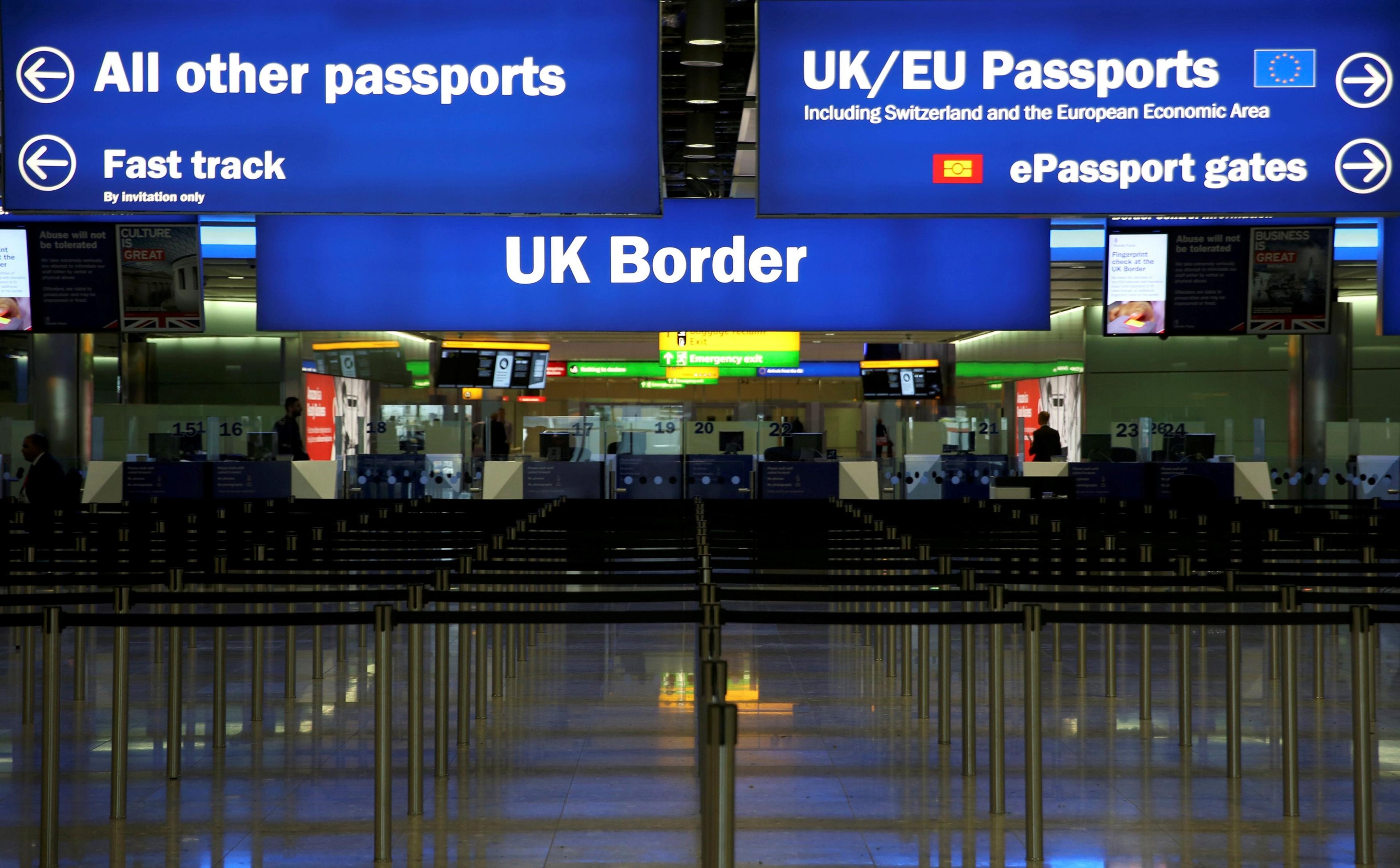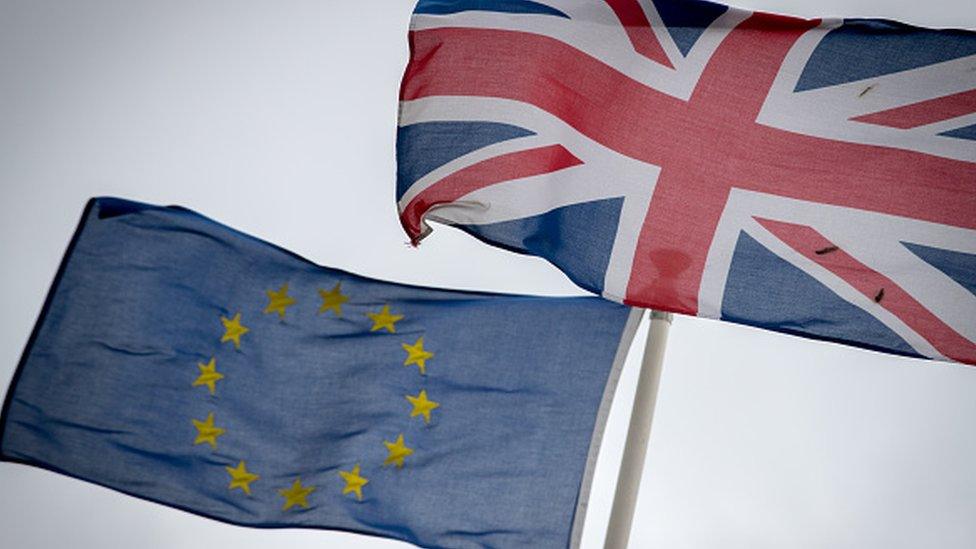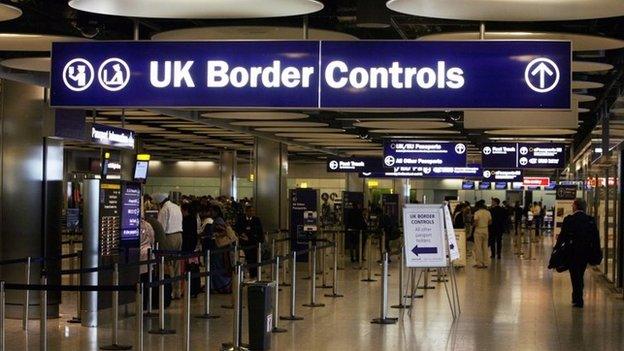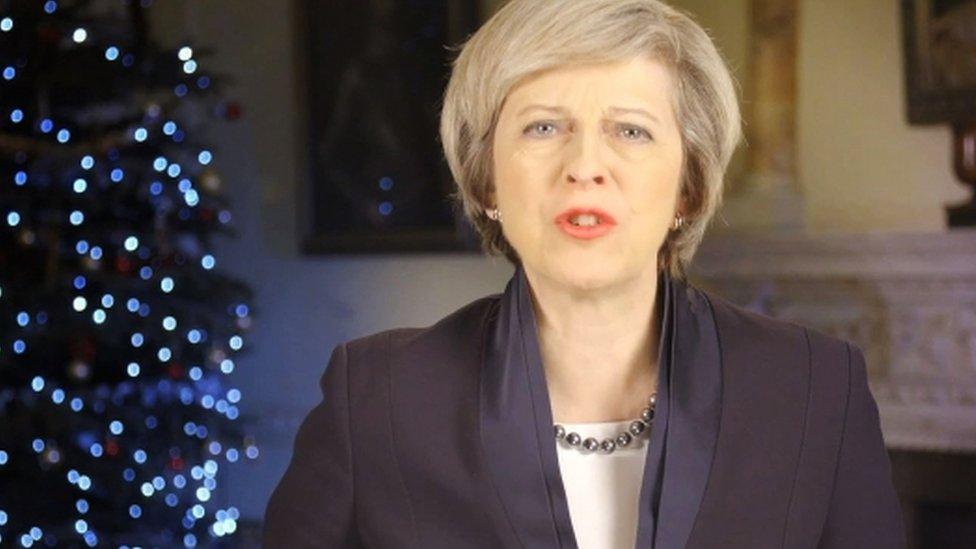Brexit: Warning on migration if Britain stays in EU single market
- Published

EU migration will not fall sharply if the UK stays in the single market, a pressure group has said.
If the UK kept market membership after Brexit, net migration from the EU was unlikely to drop below 155,000 a year in the medium term, compared to 189,000 now, Migration Watch said.
Market membership and migration control were incompatible, it claimed.
The government has not yet set out its negotiating objectives ahead of official Brexit talks.
Record number
Trade and migration are likely to be key sticking points when talks begin - expected to be in the spring.
Prime Minister Theresa May has indicated she wants limits on existing freedom of movement rules as part of the final deal.
This, ministers believe, would help the government in its broader objective of reducing net migration - the difference between the number of people settling in the UK and those leaving - to below 100,000 a year.
Overall net migration has been consistently higher than 300,000 in the last 18 months, hitting 335,000 in the year to June 2016, according to the latest figures published.
During that period, a record number of EU citizens - 284,000 in total - came to live in Britain as net EU migration totalled 189,000.
'Relentless increase'
EU leaders have insisted that single market membership and freedom of movement are inseparable, leading some UK ministers to float the idea of a transitional deal in which the UK paid for access to the single market for an interim period.
But Migration Watch, which campaigns for a "properly managed" immigration system, said the scope for reducing immigration inside the single market was "extremely limited".
Its vice chairman Alp Mehmet said continued membership of the single market would perpetuate the "present scale" of migration, with "serious consequences" for British society.
Supporters of a so-called "soft Brexit" believe membership of the internal market of 500 million customers is essential for British businesses.
They argue it will be possible for the UK to negotiate some restrictions on the number of EU workers allowed to come into the UK while retaining tariff-free access to EU markets.
'Trapped'
Campaigners for a "hard Brexit" have asked business groups across Europe to put pressure on their governments for a free trade agreement with Britain, without any obligations on immigration.
In a report on the economic challenges facing the UK, the IPPR think-tank warned of a "decade of disruption".
It said Brexit was the "firing gun" for a period of uncertainty in which there would be profound change to the country's institutions.
It warned of the risk of the UK becoming "trapped in a low growth, low interest rate decade driven by demographic shifts, productivity trends, weak investment, weak labour power, high levels of debt and the headwinds of a slowing global economy."
- Published28 December 2016

- Published26 December 2016
- Published1 December 2016

- Published24 December 2016
